Engineering
- We engineer sustainable and technologically advanced solutions that exceed client expectations.
- Designing energy efficient systems that integrate performance, wellness, and sustainability.Providing safe, sustainable, high quality power solutions to the built environment.Engineering the backbone of buildings on the front lines of design and construction.
- Integrating the digital and physical worlds for meaningful interactions.Ensuring quality installation, functionality, and performance of building systems.Prioritizing sustainable design to better serve communities and give back to the planet.
Markets
- Specializing in the engineering and commissioning of critical systems infrastructure.Solving complex engineering challenges for K-12 public and private schools.Modernizing and shaping the future of higher education facilities.
- Enabling flexible, collaborative office spaces that inspire employees.Designing built environments for commercial, residential, and institutional uses.Delivering new construction, expansion & modernizations for transportation facilities.
- Engineering the modernization of senior living for thriving communities.Adapting spaces to new lab technology and ever-evolving scientific research.Enabling the development of new, renovated and upgraded health systems and medical facilities.
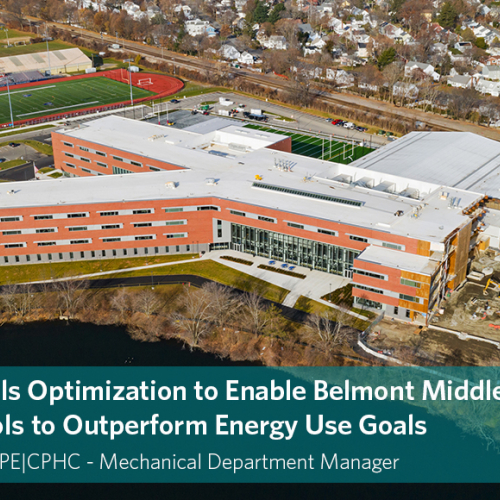
Using Controls Optimization to Enable Belmont Middle & High Schools to Outperform Energy Use Goals
Sean Sullivan, PE | CPHC | 12.17.2025
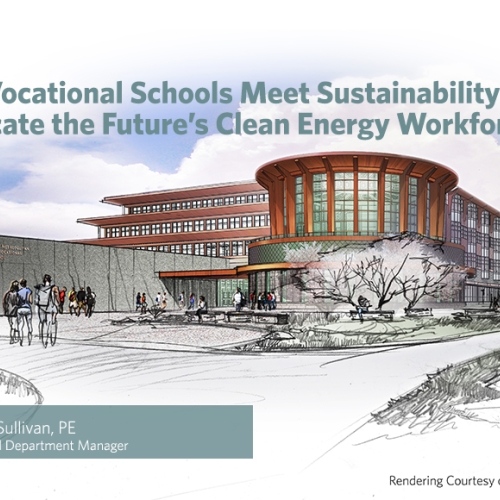
All-Electric Vocational High Schools Meet Sustainability Goals and Educate the Future's Clean Energy Workforce
Sean Sullivan, PE | 4.02.2025
Massachusetts Lieutenant Governor, Kim Driscoll, announced that the state is awarding $18 Million to drive the development of an equitable clean energy workforce. Vocational high schools will be a core source for training this labor force. Additionally, aggressive Net Zero 2050 goals are also being implemented across the state.
Recognizing these factors in Wakefield, MA has led to an alliance between the Wakefield Municipal Gas & Light Department (WMGLD) and local education departments in… Read More
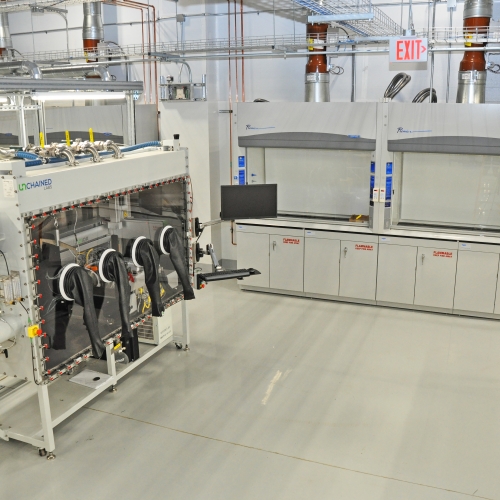
3 Key Considerations When Converting a Warehouse to a Laboratory - Published by Building Design + Construction
Jaime Leite, C.E.M, LEED AP BD+C | Life Science Market Sector Leader | 3.07.2024
CLICK HERE TO VIEW ARTICLE on BD+C - https://www.bdcnetwork.com/3-key-considerations-when-converting-warehouse-laboratory
Much has been made lately about converting vacant office space to laboratory use. However, with growing inventory in warehouse space as the distribution center market flattens, adaptive reuse of available warehouse space for life sciences applications is a concept that is coming to the fore. While it is not a simple conversion, it is easier than office space. This… Read More
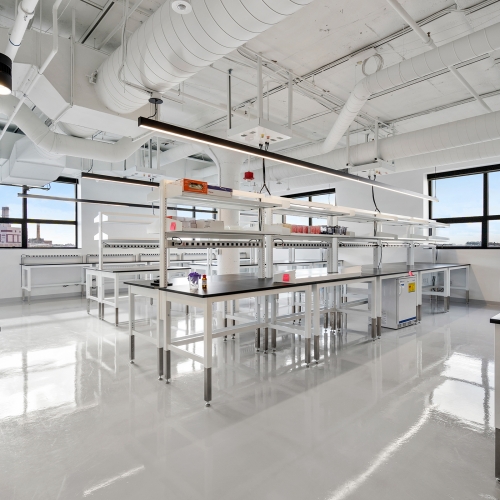
Decarbonizing Lab Design
Energy intense labs present owners, developers, and designers alike with a unique challenge to balance functional lab design with corporate sustainability goals, anticipated emissions reduction requirements, and energy codes. Now more than ever, converting offices to lab spaces requires new, more innovative, and future-focused design strategies. A creative and collaborative team is also imperative to meet unique lab needs during our industry’s ever-changing regulatory and construction cost… Read More
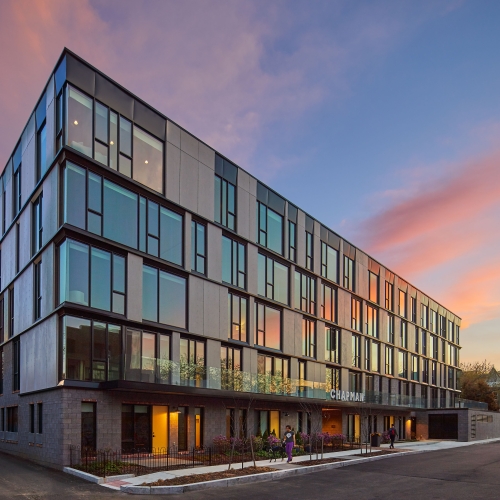
Office to Multifamily Conversions
Declining office occupancy levels combined with a growing shortage of affordable residential housing has ignited renewed interest in converting office space to multifamily housing. According to CBRE, in 2021 8 million SF of office space was converted, that number rose to 12 million SF in 2022 and is expected to continue rising in 2023. While the majority of recent office space conversions have been to the laboratory and hospitality market, conversions to multifamily housing make up one-third… Read More
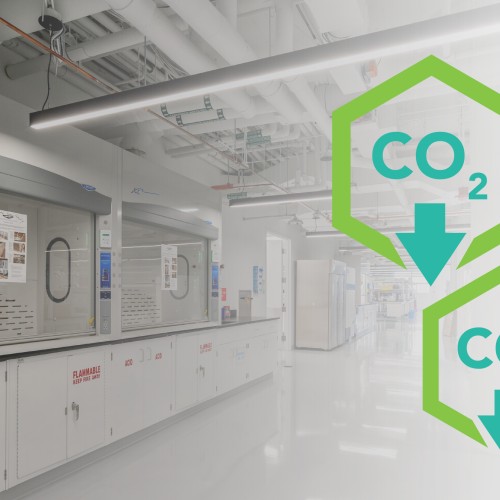
Decarbonizing Laboratory Design
By: Ciarán Smyth | 3.16.2023
Energy intense labs present owners, developers, and designers alike with a unique challenge to balance functional lab design with new emission reduction requirements and energy codes. Decarbonization of the building sector is being accelerated in New England by Boston’s BERDO 2.0 and new DOER Massachusetts Energy Codes which pose stringent building emissions limits and highly efficient energy standards. Now more than ever, converting offices to lab spaces, requires new, more innovative, and… Read More
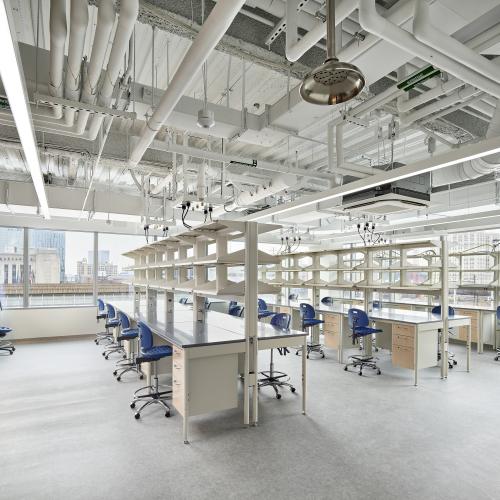
Laboratories in Tight Spaces
By: Scott Davis and Jaime Leite | 6.28.2022
Market forces have created an unprecedented demand for laboratory space in urban environments. In the past, lab space was more commonly found in suburban locations within industrial/office parks or sprawling campuses. Urban spaces appeal to smaller startup companies, as well as established firms that wish to be close to universities and other chemistry and biotechnology companies. With an influx of venture capital for life sciences deals, startups have found a source of capital that will… Read More

Local Law 97 Explained
By: Elizabeth Larsen | 4.29.2022
Effective November 15, 2019, New York City’s Local Law 97 (LL97) is one of many local climate action laws centered around protecting the environment, and subsequently people from the effects of climate change. LL97 is part of a long string of legislation dedicated to reducing energy use and greenhouse gas emissions from NYC buildings – including but not limited to: LL84, LL87, and now LL154.
LL84 (2009) – requires annual benchmarking of energy and water efficiency of buildings
LL87 (2009… Read More

BERDO 2.0 Breakdown
By: Elizabeth Larsen | 4.29.2022
BERDO 2.0 is a landmark ordinance set to drive decarbonization in Boston's building sector by establishing mandatory carbon emission standards and requiring yearly energy and emissions data reports. To avoid costly fines, building owners need to prepare for the reporting requirements starting this year and consider strategies to meet upcoming emissions limits.
Bala’s team of integrated sustainability, energy, and commissioning engineers understand the implications of BERDO 2.0 for building… Read More
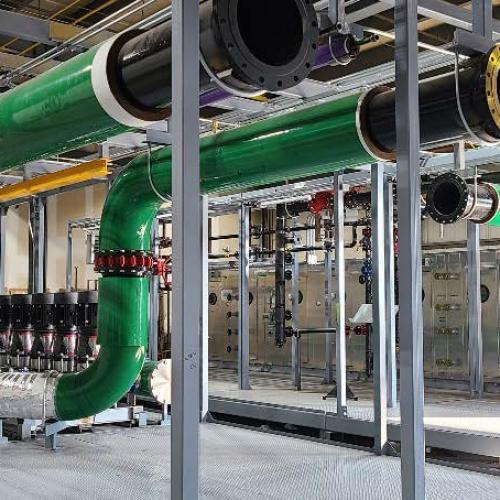
Prefabricated Mechanical Penthouses – Super Skids Driving Design and Construction Innovation
By: Sue O'Neill | 3.31.2022
Prefabrication and modular construction are growing trends for project design and construction. The benefits of these methods include faster project and construction schedules, increased quality, and less impact on the construction site. Newer drivers increasing the trend towards prefabrication and modular construction are skilled labor shortages, supply chain delays, and increased use of building information modeling (BIM).
Bala collaborated with Boston Properties and Turner Construction to… Read More
© Bala Consulting Engineers, Inc.